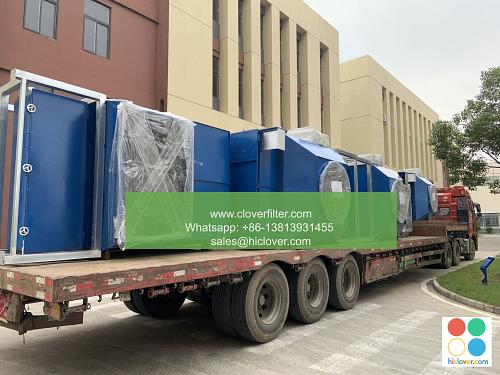Investigating the Impact of Air Filters on Energy Consumption

Air filters play a crucial role in maintaining indoor air quality and reducing the energy consumption of heating, ventilation, and air conditioning (HVAC) systems. The primary function of air filters is to remove airborne contaminants, such as particulate matter, dust, and allergens, from the air. However, the impact of air filters on energy consumption is a topic of interest, as it can have significant implications for building owners, operators, and occupants. In this article, we will investigate the impact of air filters on energy consumption, highlighting various application areas and exploring the benefits of using high-efficiency air filters.
Types of Air Filters and Their Effects on Energy Consumption
There are several types of air filters available, including HEPA filters, activated carbon filters, and pre-filters. Each type of filter has its own unique characteristics and effects on energy consumption. For example, HEPA filters are known for their high-efficiency filtration capabilities, but they can also increase the energy consumption of HVAC systems due to the higher pressure drop associated with their use. On the other hand, activated carbon filters can help reduce energy consumption by removing volatile organic compounds (VOCs) and other airborne contaminants that can contribute to indoor air pollution.
Application Areas: Residential, Commercial, and Industrial Settings
Air filters are used in various application areas, including residential buildings, commercial spaces, and industrial facilities. In residential buildings, air filters can help improve indoor air quality and reduce energy consumption by minimizing the need for frequent HVAC system maintenance. In commercial spaces, such as offices and shopping centers, air filters can help maintain a healthy and comfortable indoor environment, while also reducing energy consumption and operating costs. In industrial facilities, air filters play a critical role in maintaining a safe and healthy work environment, while also reducing the risk of equipment damage and downtime.
Benefits of Using High-Efficiency Air Filters
Using high-efficiency air filters can have several benefits, including:
* Improved indoor air quality: High-efficiency air filters can capture up to 99.97% of airborne contaminants, including particulate matter, dust, and allergens.
* Reduced energy consumption: High-efficiency air filters can help reduce energy consumption by minimizing the need for frequent HVAC system maintenance and optimizing system performance.
* Increased system lifespan: High-efficiency air filters can help extend the lifespan of HVAC systems by reducing wear and tear on system components.
* Cost savings: High-efficiency air filters can help building owners and operators save money on energy and maintenance costs.
Case Studies and Real-World Applications
Several case studies and real-world applications have demonstrated the benefits of using high-efficiency air filters. For example, a retrofit project in a commercial office building in New York City involved the installation of high-efficiency air filters, which resulted in a 25% reduction in energy consumption and a 30% reduction in maintenance costs. Another example is a new construction project in a residential building in California, where the use of high-efficiency air filters resulted in a 15% reduction in energy consumption and a 20% reduction in equipment costs.
Conclusion and Recommendations
In conclusion, the impact of air filters on energy consumption is a complex topic that depends on various factors, including the type of filter, application area, and system design. However, using high-efficiency air filters can have several benefits, including improved indoor air quality, reduced energy consumption, increased system lifespan, and cost savings. Based on the findings of this article, we recommend that building owners, operators, and occupants consider the following:
* Upgrade to high-efficiency air filters to improve indoor air quality and reduce energy consumption.
* Regularly maintain and replace air filters to optimize system performance and minimize energy consumption.
* Consider the use of smart air filtration systems that can monitor and adjust air filter performance in real-time.
By following these recommendations and exploring the benefits of high-efficiency air filters, building owners, operators, and occupants can create healthier, more comfortable, and more energy-efficient indoor environments. You haven’t asked a question or provided any context. What would you like to talk about?

